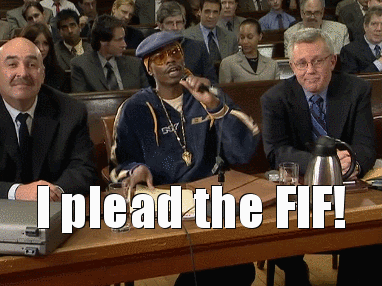Issue #22
Guten Morgen!
We hope you can relish in a beautiful late autumn weekend just as we are here in Berlin. And if you don’t, we hope this latest episode of the Krautshell makes up for it.
Enjoy and ping us for more!


Anna Christian
FIRST, SOME SOLID INTEL:
Ashton Kutcher and the Social Democratic Party of Germany
Yesterday, Germans were no doubt rubbing their eyes when they saw a tweet from US actor and activist Ashton Kutcher addressed to the party leaders of the Social Democratic Party of Germany (SPD). Kutcher wants to talk to Saskia Esken and Norbert Walter-Borjans about child abuse, more specifically about EU regulations concerning the prosecution of child abuse and child pornography in the coming years. Comment from a popular young SPD member at 10 am in the morning: “I think I need some booze!”
The background: The EU Commission is currently discussing new exemption regulation with regard to the new EU Telecommunication Codex. Simply put, because of privacy, the EU forbids the use of certain technology, and is simultaneously discussing which digital tools companies and prosecuting authorities are allowed to use when detecting illegal activities like child pornography. Kutcher’s organization “Thorn” develops software to detect such unsettling criminal offenses with the help of big tech companies. Big tech companies are already lobbying for a temporary regulation that would exempt their detection software from the ban of the new codex. EU politicians are skeptical: While they do want to protect children, the software in question also potentially surveils innocent people. The lobbying initiative was intensified a few days before Kutcher’s tweet, and seems like Kutcher is chiming in.
We Don’t Want Your Money, Brussels!
We’ve reported on the discussions concerning the EU Recovery Fund several times, and you might remember one major issue was whether the money for the Member States would be paid out as grants or credits. Besides the “frugal four” (like the Netherlands or Austria) all members agreed for grants as a major part of the facility. Thanks to the frugal four, grants will make up a much smaller part of the aid than initially planned, being replaced by credits.
Enter EU absurdities: No one wants the credits. Problem is, even indebted states like Italy could borrow money cheaper elsewhere than through the planned EU facility. Very irritating (or even cynical) are the Netherlands: This week, a Dutch government spokesperson announced that now, the Netherlands (remember: the same ones who argued DESPERATELY for credits instead of grants) only want grants, not credits. Ultimately, it can be said the EU wasted valuable time on these discussions, mainly because Dutch Prime Minister Mark Rutte is facing an election he definitely wants to win, for which he had to show strength in Europe. Very pointless strength.
What Are We Working on in the EU in 2021?
This Wednesday, the EU Commission had their “release day,” issuing their new working program for 2021. Main targets: digitalization and climate, of course. Now would be a “unique opportunity to overcome the fragility of the crisis and make the Union more vital again.” Wonderful. Instead of MAGA, we are going for MUVA – Make (the) Union Vital Again.
Most legislative initiatives work towards the target of making this decade the “digital decade” and lay out ways to increase connectivity, improve competencies and develop digital public services by 2030. Furthermore, topics in health, security, climate protection and democracy have come into focus. We don’t want to list the approaches, the EU Commission has already done it themselves here. What we found noteworthy: even though the Commission said it will legislate in “areas covering safety, liability, fundamental rights and data aspects of artificial intelligence,” the working program 2021 doesn’t entail any approach directly connected with these objectives. Anyways, if you want to know which legislation you should closely monitor for your (future) activities in the EU, make sure to reach out to us.
Digitalization of Schools in Germany – Slow and Not Really Steady
For the next years, €5.5 billion have been made available for the digitization of schools, money that is desperately needed. Just this week, it it was revealed the Corona warning app hadn’t sent out some risk warnings to people who had contact with an infected person. The reason: falsely structured Excel-sheets in several public health offices. With all the money available, parents in Berlin must have been quite angry when several schools asked for donations to be able to afford iPads for the students.
The €5.5 billion are not necessarily insufficient to fund the digitalization of German schools. What seems to be more of a problem are the “Schulträger” (basically, an authority whose job is to control whether schools are well-equipped; yes, we have own authorities for EVERYTHING!). So far, they have not really requested the money from the Federal States. This will definitely be a an important topic during the next federal election. Digital education is a pressing issue and the governing parties are currently facing a lot of mockery from the opposition. So, if you are selling good tablets or great learning software, you should have an eye on Germany. Money might be waiting for you – whenever we are ready to spend it.
Some More Democracy, Please!
Crises are times for governments and not parliaments. At least this often is the case. The German parliament doesn’t want this any longer, and they have some arguments: latest ideas of the government, like accommodation bans, were imprudent and afterwards deemed illegal in court. Results that are unlikely whenever laws and regulations are going through a parliament and a democratic dialogue.
The democratic legitimation of measures against the virus is needed, particularly to ensure understanding and support of the population. This would be time for the parliamentarians. Some of them are directly elected in their local counties and their task would be imparting the necessity of measures to their voters. They can only do this when they are actively involved in deciding the measures. And, maybe trivial, but very important: unlike some might think, parliaments are, in fact, able to act quickly. If the German Parliament can prove that, this could successfully delegitimate the practice of giving all power to the government in a crisis and support democracy beyond Germany’s borders. Definitely, the government should not risk losing the trust of the people, as this will be the most important factor in combatting the virus.
EU Strategy for Open Source
The EU Commission has issued a strategy for open source from 2020 to 2023. The Commission commited itself to increased use of free, non-proprietary software, and also announced it will support open source technologies in general. The strategy follows the principles “think open, transform, share, contribute, secure, stay in control.” It plans the establishment of open source innovation labs, reduction of bureaucratic red tape around issuing open source code and increased investments.
Open source is a central part of European digital sovereignty. By the way, last week we issued our THEÜBERSICHT in which we defined the term “digital sovereignty” (read here). An increased use of open source will lead to more innovations and a better digital ecosystem in Europe. Somehow, open source embodies the EU’s key digitization values: it is often innovative, and the accessibility of the code creates trust, while reducing unfair competition. For instance, the German Corona warning app is an open source success story. If you are active in open source, you might want to monitor these developments.
LONG STORY SHORT:
- The future of policing: This week, there was a digital breakfast of the EU ministers for the interior. They discussed the future of Europol (cooperation of EU police forces). The meeting was called to discuss Europol’s development in the digital age, which will specifically be addressed by the Commission soon. If you are active in software which supports prosecution for instance, this might be of interest to you.
- Sanctioning Russia: In 2015, there was a massive attack on the German parliament by Russian hackers. The EU now issued sanctions against several persons responsible for the attack. The EU can now freeze assets and forbid them from entering the Union.
- Supporting eGovernment: In January 2021, Portugal will start its six-month term heading the EU Council Presidency. The Portuguese government already announced intentions to allocate significant portions of the recovery program towards eGovernment. Where the EU stands in terms of digitalization you can see in the DESI report 2020 by the EU Commission. We think we are improving, but nevertheless, Portugal’s idea might not be that bad.
WHAT’S ON OUR MINDS
Where is the Beef?
For many, food science has played a game-changing role for what to eat and drink. Consequently, and ever since watching the Netflix documentary “Game Changer,” I have gone vegan myself (5 proud days so far).

In my new wok-eness the quality of life has changed tremendously, e.g. through the return of plant-based garlic pasta, pan-fried in omega3 olive oil, and deglazed with organic white wine. But Vegans are also an affected party in a regulatory war with one question at its heart:
Is a Schnitzel made of meat?

Yesterday, the European Parliament rejected all amendments that would ban the meat-related names for plant-based food products. ‘Veggie discs’ for burgers or ‘veggie tubes’ for sausages would have sounded utterly strange, indeed. What’s more, the latin origin of the word “sausage” only points to a product that is “seasoned with salt” and does not “exploit the reputation” associated with meat as the amending parties would claim. Granted, for the “Schnitzel” it is a bit more complicated and the debate is heated. Whatever the argument is, it is not un-mindful to not have an opinion here and still be a good democrat.

It is not over yet and some lobbying groups in the EU will continue to nurture this fight. However, carnivores, vegetarians and vegans should unite in digesting what 2020 has served anyway.

